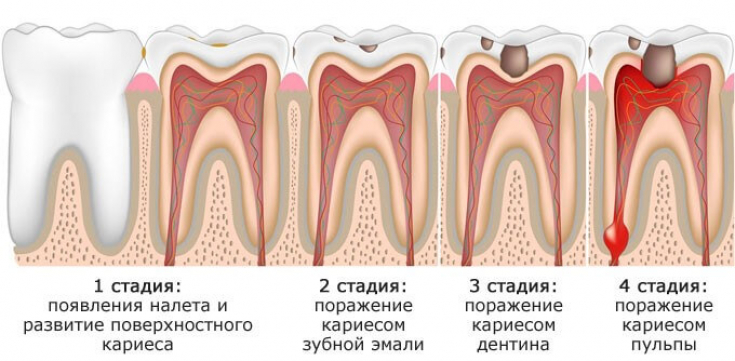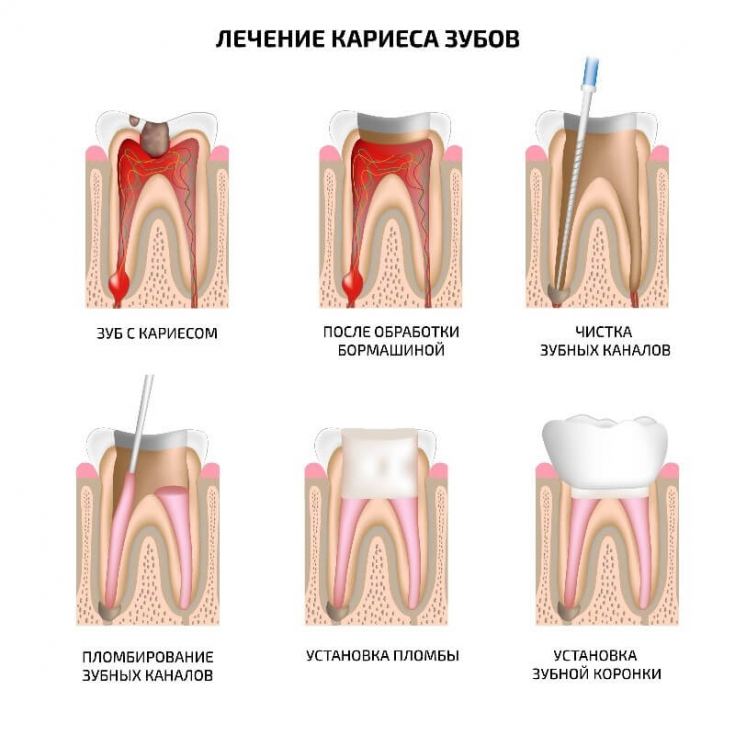Caries − a very common dental disease.
To explain the essence of this disease, it is worth saying that in Latin "caries" means "decay" − a complex infectious process that destroys the hard tissue of the tooth.
Treatment of caries for many years remained impossible, they learned to deal with it relatively recently. Perhaps that is why so many myths have appeared around this disease.
Find out in the article on estet-portal.com what are the myths about the causes and methods of caries treatment are true, and which – fiction.
- Ancient theories of caries
- The occurrence of caries as a hereditary disease
- Treatment approaches depending on the degree and causes of cariesа
Ancient caries theories
For centuries, scientists have tried to understand the etiology of the problem of dental decay. Back in the 1st century AD. Roman doctors put forward their theories about the occurrence of dental caries.
Follow us on Instagram!
One of them was put forward by Scribonius, who believed that teeth destroy the "stupid juices" that enter the oral cavity along with food. After that, there were many hypotheses that were not confirmed.
At present, the etiology of the disease is known - the cause is plaque microflora.
Avoiding Complications After Tooth Extraction: Current Recommendations
- Cause of caries – lots of sweets.
This is partly true. But studies of the role of carbohydrates in the occurrence of caries have shown that it's all about the time they stay in the abdominal cavity after eating. Sweet drinks, sugar, confectionery, chocolate are quickly dissolved by saliva and washed away. But complex carbohydrates, which are found in baked goods, in meat and fruits, take longer to digest, so their breakdown begins in the mouthy.
But not just saliva enzymes are involved in this process, but also microorganisms, the excretion products of which are one of the factors in the occurrence of dental caries.
The occurrence of caries as a hereditary disease
- Child teeth need not be treated.
Reinforce this myth with the assertion that, they say, milk teeth will fall out anyway. But we must not forget that milk teeth fall out due to physiological resorption of the root.
There are always permanent teeth underneath them. For this reason, caries in children must be treated, otherwise, serious damage to permanent teeth is possible.

- Caries − hereditary disease.
Usually, this is a myth. But still, there is some truth in this.
Since tooth enamel is formed in the embryonic period, it is possible that infectious diseases, mineral metabolism disorders, toxicosis of a pregnant woman will affect the health of the child's teeth.
- Healthy Teeth − white enamel.
False. The whiteness of the teeth does not affect their strength and health in any way. Absolutely white teeth do not exist in nature.
Pulpless tooth: 5 rules for caring for a tooth without a nerve
- To treat caries is not worth it, it is better to remove the affected tooth.
Of course, this is a false statement. Removing a tooth over time leads to displacement of neighboring ones, which will negatively affect the appearance of the teeth and chewing. Therefore, it is better to treat the tooth if possible.
- Children are more prone to caries.
No, caries in children does not occur more often than in adults. Children are usually less protected from pathogenic bacteria, but most vulnerable to caries – older patients as the muscles weaken, the gum margins recede from the tootha. Therefore, it is easier for bacteria to get into the root of the tooth.

Treatment approaches depending on the degree and causes of caries
The dentist determines the degree of development of dental caries and chooses the appropriate method of treatment. At the same time, the sooner treatment is started, the better.
For the treatment of caries in the stain stage, it is enough to carry out remineralization (recovery of a sufficient amount of the mineral) using a special solution.
Bad breath: causes and remedies
For superficial, medium and deep caries, treatment of the carious cavity is carried out, followed by filling.
But of course the best way to avoid dental problems − regularly monitor oral hygiene.









Add a comment